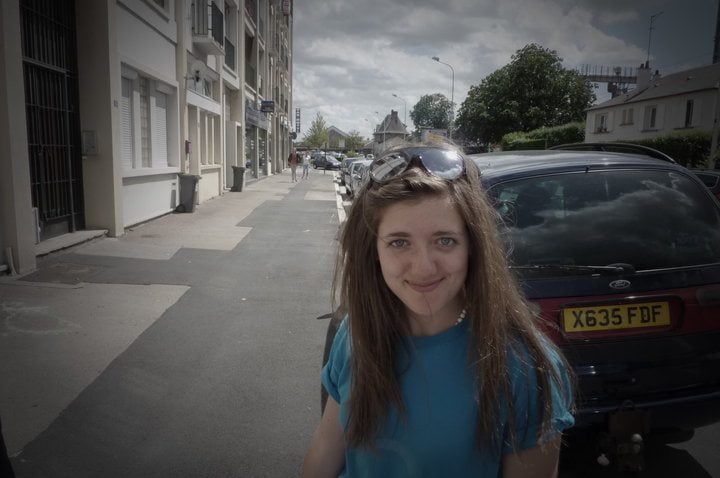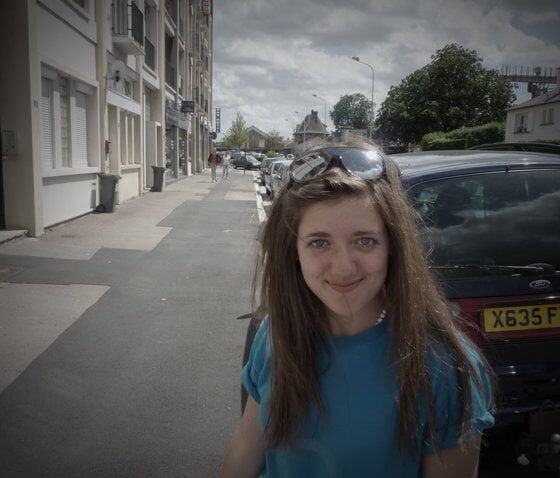

Economy
Future sustainability leaders: Ruth Shave
What will business look like in the future and who are our future leaders?
We’re over half way through our series speaking with a group of young people who are making waves in sustainability. All 12 are scholars on Forum for the Future’s renowned master’s course in leadership for sustainable development.
Ruth Shave has had placements at an NGO, a trade association, a leading multinational business and a parliamentary body. Here, she tells us about some of the key lessons she has learnt.
Tell us about your experience on the Forum for the Future master’s course. What have your placements involved?
I’ve been on a fantastic range of placements at Friends of the Earth, Unilever, the National Audit Office and UK Sustainable Investment and Finance Association (UKSIF). Going into these organisations has shown me how different cultures can be, each with their own drivers and characteristics.
Most of my work has been weighted towards communicating messages about sustainability in different ways – to employees, local action groups and wider society.
I’ve seen how the National Audit Office ‘parent’ the government through asking the right questions, while Unilever engages with emotions to get their message across. How UKSIF joins together a variety of stakeholders to create a clear message and Friends of the Earth strategically channels the views of socially and environmentally engaged citizens to the ears of decision makers.
Speaking the same language is important if you want to share messages about sustainability effectively. In energy and finance, we need more creativity to do this well.
As a recent graduate, the best aspects of placements have been firstly the people I’ve been privileged to work with and learn from, and secondly, the opportunity to flesh out theory through watching and doing.
In terms of the year as a whole, a great strength of this master’s is the emphasis on collaborative learning between those on the course. We work together while on placement as well as during the weeks of lectures. An unusually high level of trust operates in the group and it is a gift to have such talented people around you who can tell you what you need to improve on and what you’re good at.
Where does your interest in sustainability come from?
Sustainability for me is about being part of the world in a way that acknowledges interdependence and spirituality. It’s an equilibrium based on relationships that exist between the physical environment, plants, animals (unfortunately mostly dead rodents or cats in a city like London), and people.
I think working in the area of sustainability is about taking a ‘both and’ approach, valuing diversity and allowing disparate ideas to influence each other.
As a music student, I learned a lot about the value of art in culture, broadening my view of what sustainability is. Travelling can put you in uncomfortable situations that make you realise how fortunate (and small) you are, whether in the face of Icelandic glaciers or waste mountains elusively visible through Delhi smog. I would think my experience has been one fairly typical of many millennials and I’m in a fortunate position to be doing what I am at the moment.
What is the best piece of advice you’ve been given during your course?
Being taught by Sara Parkin has been one of the highlights of this year. Her book, The Positive Deviant, is full of constructive and practical insights. To paraphrase some of the advice she has shared: build on strengths (yours and others); have integrity; aim for good enough.
What’s most important business lesson you’ve learnt?
The values of a business are important – the embodied values of everyone involved more than the values written down in statute or on a website. Values are important because they impact the output of an organisation and because they are difficult to change.
Brands such as Interface, Triodos and Patagonia illustrate just what can happen when there’s are integrated approach to valuing people, profit and resources. Values are different from but connected to the personality of an organisation so there is plenty of variety ahead for the business landscape.
Paul Polman is one CEO who has sought to embed sustainable values during his time at Unilever: “As a company, we have a long history of doing the right thing. When William Lever started the company, in the 19th century, Britain had big hygiene problems. So he invented bar soap—not to make more money, but because in Victorian England one out of two babies didn’t make it past year one. That established the company’s values, and we need to build on them.”
What one idea do you think could change the world for the better?
Oh wow, what a question – if everyone could put their one good idea into practice, the world would definitely change for the better! Mine would be creating the kind of environment the sustainable finance industry can get out of its cocoon and transform the way investments are made.
What do you see of the future in terms of sustainability, business and the environment?
I think there will be more and more cross-sector collaboration enhanced by communication technology. I hope that the tension between risk and innovation will be managed better in organisations and system-wide, so that progress can speed up tackling society’s multifaceted challenges.
Where will you be in 10 years’ time?
Hopefully doing something challenging and exciting in the sustainability/arts crossover.
Further reading:
Future sustainability leaders: Angela Green
Future sustainability leaders: Andrew Adam
Future sustainability leaders: Zoe Draisey
Future sustainability leaders: Rebecca Trevalyan


 Environment12 months ago
Environment12 months agoAre Polymer Banknotes: an Eco-Friendly Trend or a Groundswell?

 Features11 months ago
Features11 months agoEco-Friendly Cryptocurrencies: Sustainable Investment Choices

 Features12 months ago
Features12 months agoEco-Friendly Crypto Traders Must Find the Right Exchange

 Energy11 months ago
Energy11 months agoThe Growing Role of Solar Panels in Ireland’s Energy Future


























